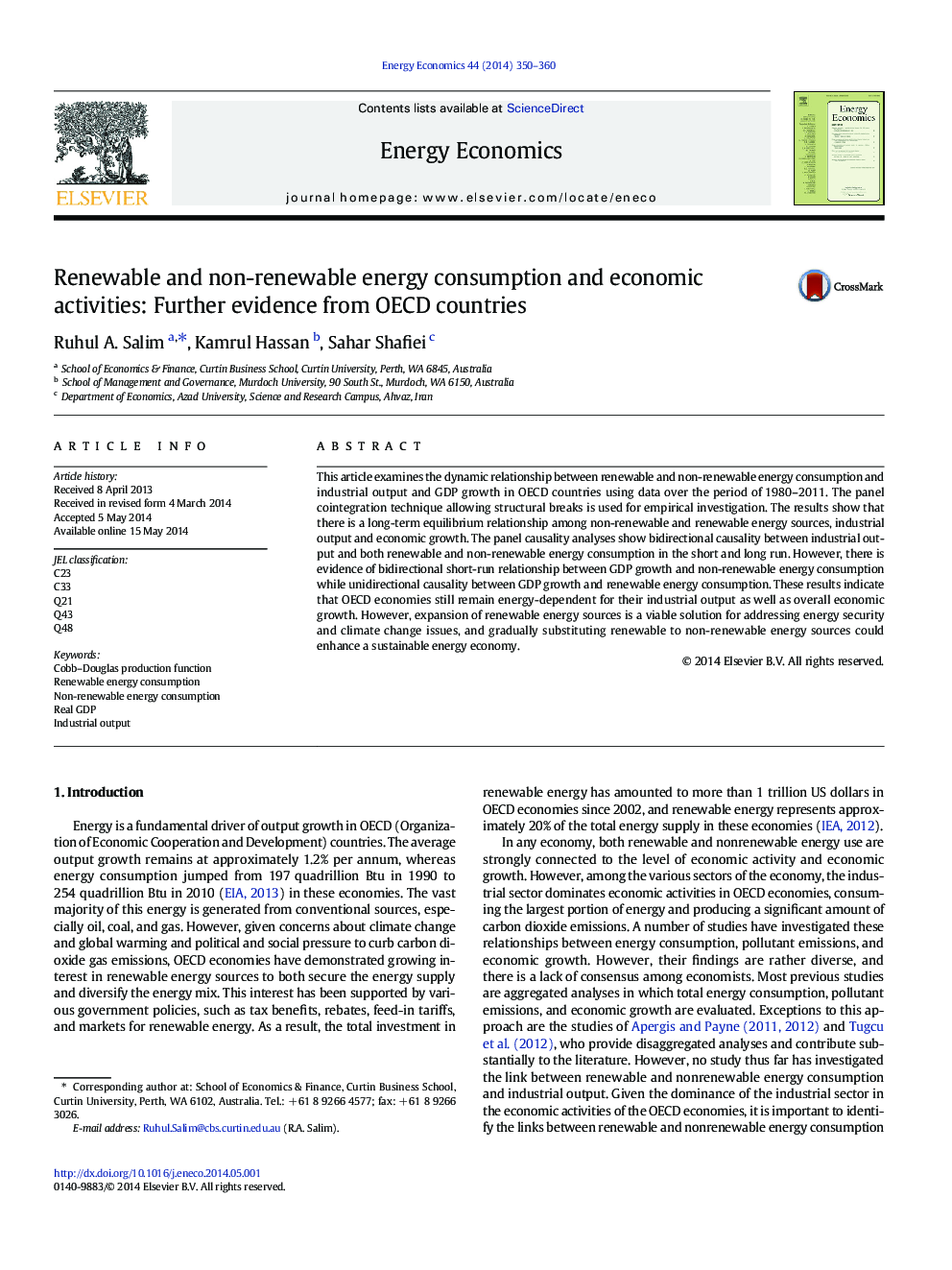| کد مقاله | کد نشریه | سال انتشار | مقاله انگلیسی | نسخه تمام متن |
|---|---|---|---|---|
| 5064621 | 1476719 | 2014 | 11 صفحه PDF | دانلود رایگان |

- Examine the relationship between renewable and non-renewable energy consumption and economic activities in 29 OECD countries
- The Pooled Mean Group (PMG) estimator is used to examine causal link among variables.
- Unidirectional causality holds between GDP growth and renewable energy consumption.
- Bidirectional short-run causality holds between GDP growth and non-renewable energy consumption.
- Bidirectional causality also holds between industrial output and renewable and non-renewable energy consumption.
This article examines the dynamic relationship between renewable and non-renewable energy consumption and industrial output and GDP growth in OECD countries using data over the period of 1980-2011. The panel cointegration technique allowing structural breaks is used for empirical investigation. The results show that there is a long-term equilibrium relationship among non-renewable and renewable energy sources, industrial output and economic growth. The panel causality analyses show bidirectional causality between industrial output and both renewable and non-renewable energy consumption in the short and long run. However, there is evidence of bidirectional short-run relationship between GDP growth and non-renewable energy consumption while unidirectional causality between GDP growth and renewable energy consumption. These results indicate that OECD economies still remain energy-dependent for their industrial output as well as overall economic growth. However, expansion of renewable energy sources is a viable solution for addressing energy security and climate change issues, and gradually substituting renewable to non-renewable energy sources could enhance a sustainable energy economy.
Journal: Energy Economics - Volume 44, July 2014, Pages 350-360